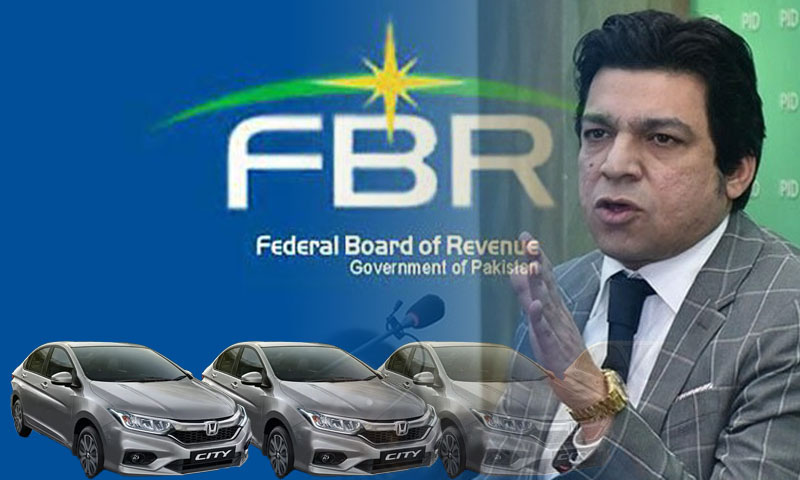- Web Desk
- Feb 19, 2026
FBR officials threaten to kill me, ruin my business over vehicle purchase issue: Vawda
-

- Abobakar Khan Web Desk
- Jan 30, 2025

ISLAMABAD: Former federal minister Senator Faisal Vawda has alleged that officers of the Federal Board of Revenue (FBR) have threatened to kill him and ruin his business over the issue of vehicle procurement.
He hurled these accusations at the FBR officials during a meeting of the Senate Standing Committee on Finance on Thursday.
During the meeting – which was presided over by Senator Saleem Mandviwalla – the FBR’s decision to purchase 1,010 vehicles remained the focal point of discussions.
The FBR — whose prime responsibility is to collect taxes to boost dwindling revenues — had announced to spend a whooping Rs6 billion to purchase new vehicles for what it said to “boost operational capacity” of the tax body.
Senator Vawda, during a committee meeting on January 22, had labelled the FBR’s decision as outright corruption, warning that he would approach the national Accountability Bureau (NAB) and the Federal Investigation Agency (FIA) if the vehicles were purchased.
Following these remarks, Vawda alleged that three FBR officers namely Ali Saleh Hayat, Shahid Soomro, and Dr Hayat Siddiqui not only threatened to destroy his business but also to kill him. “This matter warrants criminal action. I have evidence and will take action against them,” he asserted.
He further said that the FBR’s letter for vehicles’ purchase surfaced on January 10. Interestingly, he added, letter of intent to buy vehicles was issued the same day. “However, when the committee took notice, a raid was conducted on a multinational car company as a countermeasure.”
Vawda claimed to have a list of 54 corrupt officers involved in the trade of gems and gold. “I have complete details of their properties and assets, along with proof of who misuses FBR vehicles,” he added.
He accused the FBR of criminal negligence in vehicle procurement, noting that 1,000 vehicles would consume fuel worth one billion rupees annually. “One hundred four-wheel enforcement vehicles have been sent to officers’ homes,” he claimed.
Responding to Vawda’s allegation, FBR Chairman Rashid Mahmood Langrial called for a high-level inquiry into the matter, and assured that the officers involved in issuing threats would not be spared.
Similarly, the committee members emphasized the need to thoroughly investigate the matter of threats to a senator, and demanded that the case be handed over to a crime agency or the FIA.
Upon this, Vawda said that the inquiry can be launched if another senator receives threats. “No need to launch a probe in my case.”
It is worth noting that the Senate Standing Committee on Finance had previously expressed anger over the purchase of over 1,000 vehicles worth billions of rupees for FBR officers.
Chairman Saleem Mandviwala questioned why the FBR was purchasing such a large number of vehicles. Senator Faisal Vawda also objected, alleging that the FBR was buying vehicles from a specific company, calling it a major scandal.
Income tax forms to be simplified: Finance Minister
Later in the meeting, a revenue shortfall of 386 billion rupees over six months was also discussed.
Federal Finance Minister Senator Muhammad Aurangzeb stated that Pakistan is currently engaged in a medium-term programme with the International Monetary Fund (IMF). “This time, all stakeholders will be consulted on the budget in February.”
He announced plans to visit the Islamabad Chamber of Commerce on Monday, accompanied by the Minister of State and the FBR chairman. He further stated that the tax policy would be separated from the FBR in the next fiscal year.
The minister assured that steps would be taken to reduce the burden on salaried individuals and that the income tax form would be simplified for them.
Senator Sherry Rehman inquired whether any existing taxes could be converted into other categories, suggesting the possibility of turning the petroleum levy into a carbon tax.
Committee member Senator Farooq H Naek warned that imposing a carbon tax would lead to higher prices, further burdening the poor.
The finance minister responded that Pakistan had signed a Country Partnership Framework with the World Bank, which includes provisions for climate and carbon policies.




